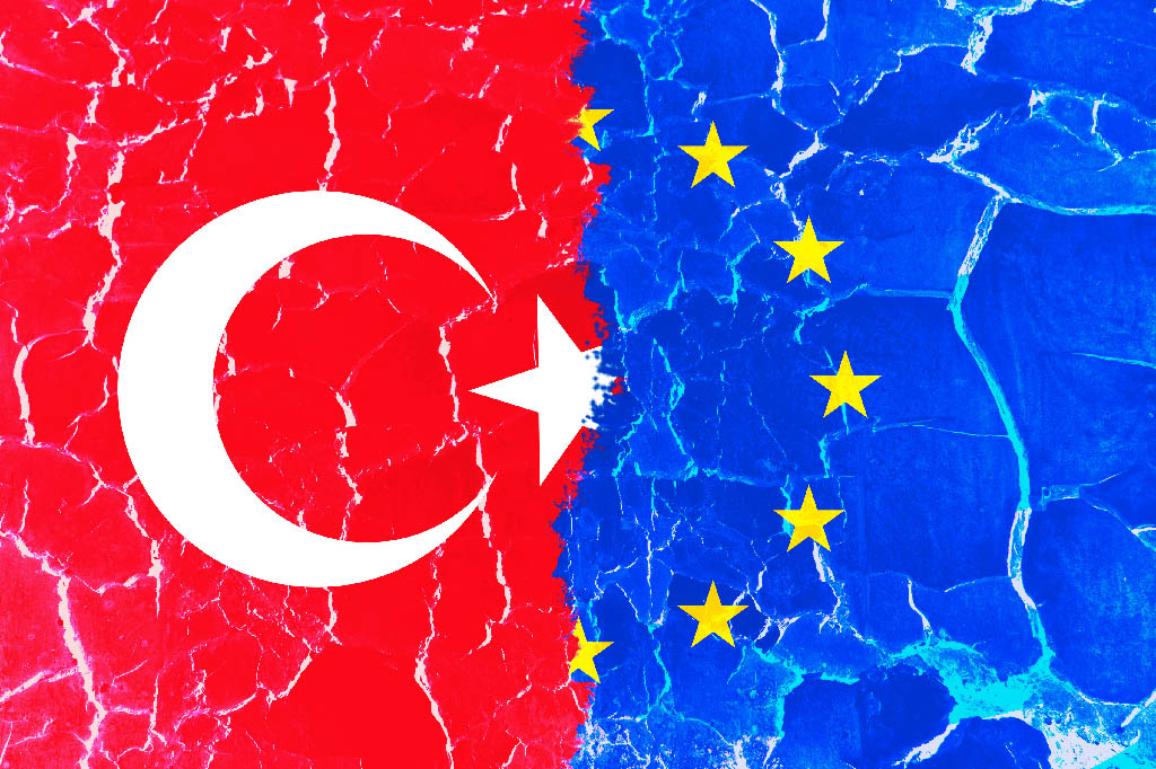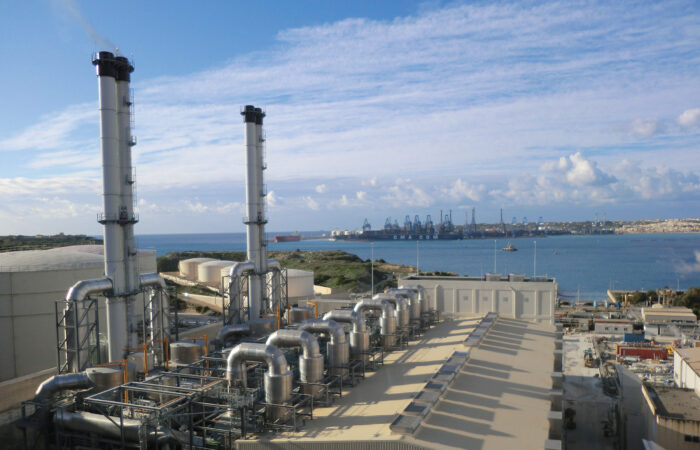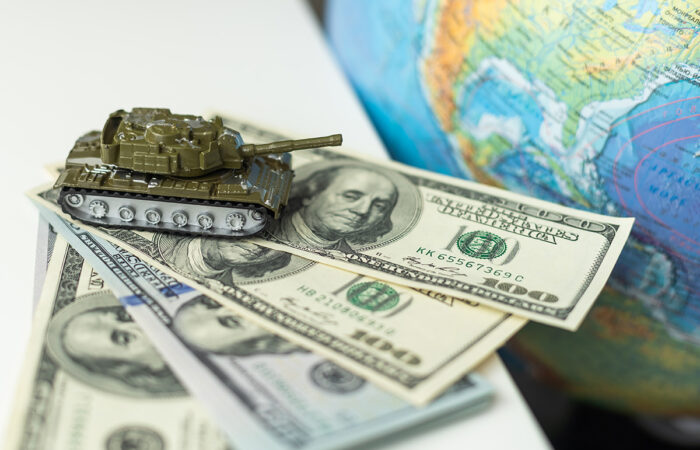Luigi Scazzieri*
Turkey’s presidential and parliamentary elections, this Sunday, May 14th, will determine whether President Recep Tayyip Erdoğan remains in office, and they will shape the country’s domestic and foreign policies for years to come, including the fractious state of the relationship with the EU. If Erdoğan remains in power, relations will remain tense. An opposition victory would revive and strengthen EU-Turkey relations, but it is unrealistic to think that all sources of friction would disappear.
Turkey’s relations with the EU, have been tense for a prolonged period of time. The EU-Turkey migration agreement of 2016 briefly revitalised relations, but the continuing erosion of democratic freedoms in Turkey, especially after the 2016 coup attempt, and mounting tensions with member-states led to the EU formally freezing membership talks in June 2018.
Despite the many sources of friction, Turkey and the EU remain key trading partners and have continued to work together on issues such as climate, health, and migration. However, the poor state of relations has made many areas of co-operation more difficult. Meanwhile, the EU-Turkey customs union, which forms the economic bedrock of the relationship, has eroded as Turkey has put up tariff and non-tariff barriers to EU products.
Turkey is still reeling from the devastating earthquakes that struck in February this year, causing the death of at least 50,000 people, according to the official toll. The political damage from the earthquakes comes on top of that from Turkeys’ economic difficulties, with inflation hitting 85 per cent in October last year.
Six opposition parties, including the secular Kemalist People’s Republican Party (CHP) and the nationalist Good Party (IYI), formed the ‘Nation Alliance’ to back Republican Party leader Kemal Kılıçdaroğlu as its joint candidate.
The EU-Turkey relationship: the roots of discord
There are three fundamental reasons why the EU-Turkey relationship is in such poor shape: the bilateral spats between Turkey and many member-states; the EU’s concerns about the state of democratic freedoms in Turkey; and arguments over broader foreign policy issues.
Turkey has fairly good relations with some EU members, like Germany, Italy, and Spain. But it has sharp disagreements with many others, above all Cyprus, France, and Greece. Turkey’s non-recognition of Cyprus, and the latter’s entry into the EU in 2004, ensured that Ankara’s accession talks stalled almost as soon as they started in 2005. But many member-states were always ambiguous about allowing Turkey into the club, thinking that it was too large, poor, and culturally different.
The discovery of gas deposits off the coast of Cyprus in the early 2010s proved to be another source of friction. Turkey thinks that Cyprus should not unilaterally exploit these resources, arguing that Turkish Cypriots have a right to a share. Ankara also claims that some of Cyprus’ exclusive economic zone overlaps with its self-declared continental shelf. And Turkey has also supported the establishment of a state for the Turkish Cypriots in the north of the island, undermining the UN-backed notion of a bizonal bicommunal federal state as a solution to the dispute.
Ankara has clashed with Athens over issues such as the delimitation of their respective airspace, territorial waters, and exclusive economic zones. In 2019 Turkey concluded a maritime deal with the Libyan government in Tripoli which claimed large parts of the waters directly south of Crete as Turkish. Turkey has also criticised Greece over its military deployments on some Aegean islands, which Ankara says are illegal.
The most recent tension surrounds Turkey’s ongoing veto on Sweden and – until recently – Finland’s NATO membership bids.
In addition, for Europe, the deterioration of democratic freedoms in Turkey is a key issue that prevents Ankara’s accession negotiations from moving forward and hinders co-operation in many other areas.
Regarding foreign policy, although Turkey is a NATO member, since 2015 Ankara has pursued a more assertive and militarised foreign policy that many Europeans perceive as threatening and antagonistic. Turkey has intervened in the conflicts in Syria and in Libya and supported Azerbaijan in the 2020 war against Armenia over the Nagorno-Karabakh region.
The poor state of EU-Turkey relations has also meant that many in Europe increasingly see Turkey as a competitor to the EU in the Western Balkans, Central Asia and Africa, all regions where Ankara has sought to increase its economic and diplomatic influence.
Finally, Turkey’s relatively close relations with Russia have further soured the mood towards Ankara in many European capitals (and in Washington). Following the 2016 coup attempt, Turkey bought an S-400 air defence system from Moscow, which the US and other allies say y incompatible with NATO’s air defences. Turkey needs to co-ordinate with Russia to carry out its military operations against the YPG in Syria. Russia is also an important economic partner for Ankara. In 2021, Moscow provided around 45 per cent of Turkey’s gas imports, it is building Turkey’s first nuclear power plant, and Russian tourists are important to the Turkish economy. All this helps to explain Turkey’s reluctance to impose economic sanctions on Russia. Instead, its economic ties to Russia have deepened, which have irked many EU states.
The post-election scenarios
While there are several post-election scenarios, control of the presidency is the key variable. If Erdoğan remains in power, the potential for turbulence in relations with Europe would be high. It is difficult to imagine that he would take steps to improve democratic freedoms. And if democracy in Turkey erodes much further, there will be increasingly loud calls in Europe to formally end Ankara’s EU accession process. Similarly, Erdoğan’s foreign policy towards Greece and Cyprus would be unlikely to change, meaning that relations with the EU would remain tense. Ankara’s ties to Russia could also lead to sharp arguments with many EU allies, as would a continued veto of Sweden’s NATO membership.
Nevertheless, greater tensions are not inevitable. Erdoğan would have reason to dial down tensions with the West. The EU remains Turkey’s most important trading partner, which provides strong incentives for Turkey to maintain decent relations with Europe.
Government by the opposition
A victory by the opposition alliance would lead to substantial changes in Turkey’s domestic and foreign policy, and in its relations with Europe and the US. The opposition alliance says it wants to change the constitution back to a parliamentary system, restore the independence of the judiciary and the central bank, and pursue an orthodox economic policy. Opposition parties have been critical of the side-lining of the ministry of foreign affairs and of what they see as the overtly militarised and interventionist foreign policy pursued by Erdoğan. They say they want to prioritise diplomacy in resolving disputes like those with Greece and Cyprus and build better relations with the US and Europe. Opposition parties are committed to obtaining EU membership, recognising it is a long-term undertaking. If the opposition does what it says it wants to do, relations between Turkey and its European partners would markedly improve and there would be an opportunity to relaunch EU-Turkey relations. The degree to which the opposition can implement its promises will depend on the scale of its possible victory: if Kilicdaroglu is president but the AKP and its allies maintain a parliamentary majority, then momentum for change would be undermined.
Some areas of tension between Turkey and the EU would probably endure anyway. First, the disputes with Greece and Cyprus will remain difficult to resolve. Second, Turkish foreign policy on some issues may not change as much as Ankara’s Western partners hope. When it comes to relations with Russia, Turkey would still have to work with Moscow in Syria, while the importance of trade with Russia and Ankara’s reliance on Russian energy would not change. The policy of an opposition government towards the war in Syria is not fully clear. On other foreign policy issues, from Libya to the Western Balkans, the degree to which Turkey’s policy would change is also unclear. All these factors mean that there could still be friction with many member-states on foreign policy.
Ultimately, Europeans should not expect a new Turkish government to simply go back to behaving as Ankara did before the AKP era. Despite its recent economic problems, Turkey is a much wealthier country than it was then, and a much more powerful one in diplomatic and military terms. The global context has also changed, with the West no longer as dominant as it was at the turn of the millennium. EU membership may still be Turkey’s favoured option, but a successful Turkey outside the EU is much easier to imagine than it once was. Public opinion polls suggest that distrust of the West is deeply embedded in Turkey, and this is likely to limit any government’s room for manoeuvre.
Conclusions
These developments mark a structural change in the EU-Turkey relationship, which Europeans will have to adapt to. If Erdoğan remains in power, relations will remain tense, and there would be potential for additional turbulence, particularly on foreign policy. An opposition victory would lead to a lowering of EU-Turkey tensions and pave the way for a revived and strengthened EU-Turkey partnership – although it is unrealistic to think that all sources of friction would disappear.
*Luigi Scazzieri is a senior research fellow at the Centre for European Reform. The article is a summary version of a policy brief posted on the website of the Centre for European Reform.




